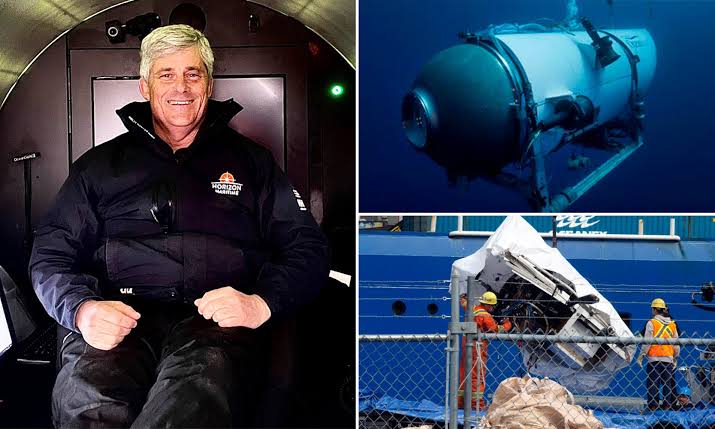OceanGate CEO Stockton Rush wanted to use the doomed Titan sub for deep-sea mining of minerals on the sea floor, a resurfaced interview has revealed.
Rush, who perished with four other men on the vessel last month, told a magazine in 2017 he believed his technology could boost the oil and gas industries.
Rush and OceanGate have since come under fierce scrutiny after charging $250,000 for a seat on a submarine which had faced a litany of safety concerns before it imploded on its way down to the Titanic wreck.

Speaking to business magazine Fast Company six years ago, Rush discussed plans to use the untested vehicle to harvest resources from the ocean floor, with hopes of eventually reducing costs for future voyages.
‘The biggest resource is oil and gas, and they spend about $16 billion a year on robots to service oil and gas platforms,’ Rush said in April of that year – during a purported push to move on from the sub’s building phase to testing.
‘But oil and gas [companies] don’t take new technology. They want it proven, they want it out there.’
Rush – a self-professed ‘innovator’ who had sought to push the boundaries on passenger diving – went on to posit how the success of OceanGate’s eventual tourism dives could prove to companies that his submersible could be utilized for business as well.
‘The long-term value is in the commercial side. Adventure tourism is a way to monetize the process of proving the technology,’ the sea-faring CEO said.
‘The Titanic is where we go from startup to ongoing business.’
Sadly, Rush’s vision would never come to fruition, with the Titan’s predominantly carbon fiber hull succumbing to the pressure incurred toward the 3,800 meter depths where the ship still resides – after two successful trips the years before.
The revelation comes roughly a week after it was revealed a former OceanGate staffer in David Lochridge, was fired after airing concerns about the Titan in January 2018.
At the time, Lochridge, formerly OceanGate’s director of marine operations, was one the only experienced submarine pilot at the company, and had already been raising concerns about the Titan from the factory floor.
Those warnings were allegedly delivered during the latter half of 2017, but were constantly dismissed as part of a push to move on from the building to begin testing, the July report from The New Yorker claimed.

